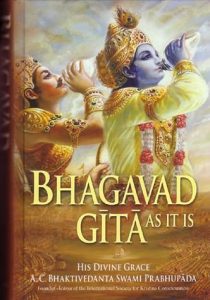Introduction to Philosophy, Religion and Ethics
Avanti Schools share the same distinctive ethos, founded on three pillars: Educational Excellence, Character Formation and Spiritual Insight. Our curriculum is developed to include a Philosophy & Ethics course, which although taught discretely, is intended to inform all learning throughout pupils’ and students’ time at school. The P&E course is focused on developing seven key values. Humility is the overarching value and unifies the others, which are: empathy, courage, respect, self-discipline, gratitude and integrity. Each value is covered over each one of the 6 academic terms, repeating year on year to extend pupils’ and students’ understanding to show progress over time (e.g. Autumn 1 focus is Empathy).
Included in each term is a focus Festival Day that unifies the values and character qualities we intend to develop. These are special celebratory days, involving planned lessons, performing arts and opportunities to perform publically. The overview identifies expectations for significant milestones throughout the school career (roughly based on 2 years e.g. end of Year 2, end of Year 4 etc). Yoga, meditation and mindfulness, Sanskrit and RE lessons contribute to the holistic education of pupils and students and are linked with the P&E course.
‘Everything we do at Avanti aims to inspire spiritually compassionate changemakers. Our distinctive philosophy, religion and ethics curriculum intends to achieve this aim: through cultivating curiosity to explore life’s big questions with open hearts and minds, through religious learning to foster humility, love, and a sense of interconnectedness with all living beings and divinity, and through ethics to shape conscious changemakers who embody virtues and think critically. In so doing, we equip our children and young people with the tools to lead meaningful, joyful lives, and make a positive contribution in the world.
While parents and carers do have the right to withdraw their child from all or part of PRE (by contacting the school office), we believe that participation can greatly enrich children and young people’s understanding of the world and those around them.’
Summary
Weekly/twice weekly sessions lasting 45 minutes (2 sessions in Secondary School)
One value covered each term
Linked with Yoga, meditation and mindful lessons
Linked with RE and Sanskrit lessons
Celebration Festival Days each term (based on Hindu and other religious festivals)
Assessed termly against Expected Outcomes
Year Overview
| AUTUMN-1 | AUTUMN-2 | SPRING-1 | SPRING-2 | SUMMER-1 | SUMMER-2 | |
|
VALUE FESTIVAL |
Empathy |
Self-discipline |
Respect |
Integrity |
Courage |
Gratitude |
| Diwali & Goverdhan-Puja |
Christmas
|
Gaura Purnima |
Gaura Purnima/ Holi |
Narasimha Chaurdasi |
Rathyatra | |
| Hannukah | Shivratri | Easter/ Passover |
Bhagavad Gita Verse

Bg 5.18
brāhmaṇe gavi hastini
śuni caiva śva-pāke ca
paṇḍitāḥ sama-darśinaḥ
A Kṛṣṇa conscious person does not make any distinction between species or castes. The brāhmaṇa and the outcaste may be different from the social point of view, or a dog, a cow and an elephant may be different from the point of view of species, but these differences of body are meaningless from the viewpoint of a learned transcendentalist. This is due to their relationship to the Supreme, for the Supreme Lord, by His plenary portion as Paramātmā, is present in everyone’s heart. Such an understanding of the Supreme is real knowledge. As far as the bodies are concerned in different castes or different species of life, the Lord is equally kind to everyone because He treats every living being as a friend yet maintains Himself as Paramātmā regardless of the circumstances of the living entities. The Lord as Paramātmā is present both in the outcaste and in the brāhmaṇa, although the body of a brāhmaṇa and that of an outcaste are not the same. The bodies are material productions of different modes of material nature, but the soul and the Supersoul within the body are of the same spiritual quality. The similarity in the quality of the soul and the Supersoul, however, does not make them equal in quantity, for the individual soul is present only in that particular body whereas the Paramātmā is present in each and every body. A Kṛṣṇa conscious person has full knowledge of this, and therefore he is truly learned and has equal vision. The similar characteristics of the soul and Supersoul are that they are both conscious, eternal and blissful. But the difference is that the individual soul is conscious within the limited jurisdiction of the body whereas the Supersoul is conscious of all bodies. The Supersoul is present in all bodies without distinction.

